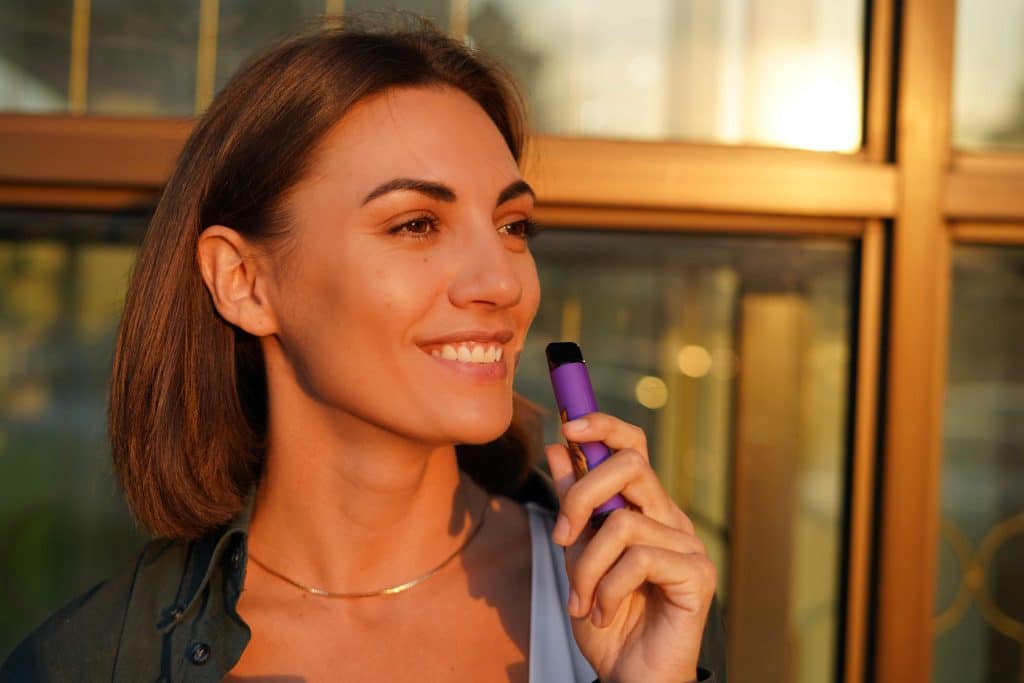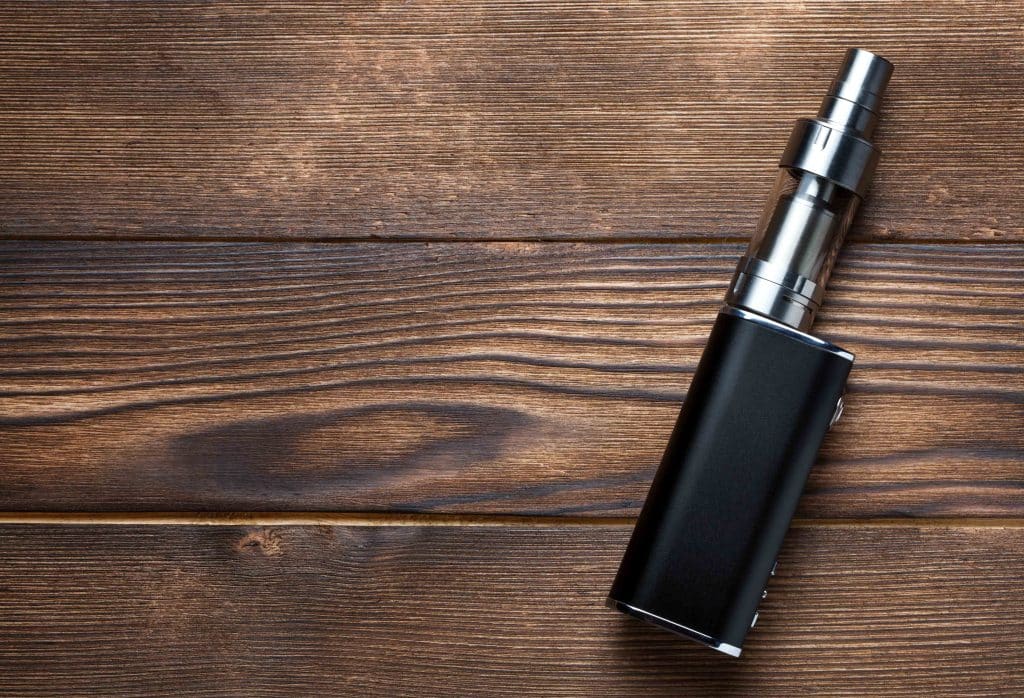Exploring the regulatory landscape of vape vending machines is like trying to find our way through a dense, uncharted jungle. It’s intricate, filled with potential pitfalls and challenges that can snare the unprepared. We’ve grappled with the thorny issues of technology, global, federal, and state regulations, and the tricky terrain of compliance.
We’re about to uncover how these elements interact and influence the successful operation and expansion of a vape vending business. Intrigued? We invite you to join us on this journey, as we map out this wild territory together.
Get Free Consultation
Key Takeaways
- Understanding the global and local regulations governing vape vending machines is crucial to operate legally and successfully.
- Age verification technologies are indispensable for compliance with laws restricting vape sales to adults.
- Implementing effective compliance measures and continuous monitoring can prevent legal issues and penalties.
- Future trends in regulations and technology could offer new opportunities or challenges in the vape vending machine market.
Read more about our Smart Vending Solutions!
Introduction to Vape Vending Machines
Let’s kickstart our conversation on vape vending machines. We’ll explore the technology behind these machines, inspect the various types available, and examine their current market presence. This will lay a solid foundation for understanding the regulatory framework we’ll tackle later on.
Understanding Vape Vending Technology
Diving into the world of vape vending machines, we find a sophisticated technology that guarantees convenience and accessibility for users while adhering to strict regulatory standards. These machines, whether it’s a small vape vending machine tucked away in a corner or a more prominent unit, offer a variety of products, including disposable vape options.
The vape vending machine business is growing, with more machines popping up in locations near you. When looking for a vape vending machine for sale, it’s important to understand its unique technology. These machines are not just about vending; they’re also about ensuring legal compliance, user-friendliness, and serving the needs of the vape community. They’re a reflection of the innovation within the vaping industry.
Types of Vape Vending Machines
Moving on from the technology behind these machines, we find a variety of vape vending machines designed to cater to different markets and customer needs.
- Standard Vending Machines: These are the most common and dispense a wide range of vaping products.
- Specialized Vending Machines: These cater to a specific customer base with a specific product range, like high-end vapes.
- Small-Scale Vending Machines: These are compact and portable, perfect for small businesses and events.
- Large-Scale Vending Machines: These are designed for high-traffic areas and can handle a larger inventory.
Each type of machine has its own advantages and is selected based on factors such as the target market, location, and the specific needs of the vending business.

Current Market Presence
Surveying the global landscape, we find vape vending machines strategically placed in various locations, from convenience stores to nightclubs, indicating their growing market presence. This growth isn’t random; it’s a reflection of changing consumer trends and evolving smoking habits.
To illustrate, we’ve compiled a table indicating the prevalence of these machines in different settings.
| Location | Vape Machine Presence |
| Convenience Stores | High |
| Nightclubs | Moderate |
| Shopping Malls | Low |
While convenience stores serve as the primary hub, nightclubs and shopping malls are increasingly catching up. With evolving regulations and consumer acceptance, we’re likely to see a further surge in the market presence of vape vending machines.
Overview of Vaping Regulations
Let’s now turn our attention to the regulations surrounding vaping. We’ll start by looking at the rules on a global scale before narrowing down to federal and state regulations in the U.S. Finally, we’ll examine how these laws and guidelines are impacting the vape vending business.
Global Regulatory Environment
In the domain of vaping regulations, the global landscape varies greatly from country to country. Let’s take a quick tour:
- United Kingdom: They’ve fully embraced vaping as a smoking cessation tool. Regulations are generally lenient, allowing vape vending machines in adult-only venues.
- Australia: Here, nicotine-based vaping products are strictly regulated, requiring a prescription to purchase.
- Japan: They’ve banned the sale of nicotine-infused e-liquids entirely, meaning vape vending machines aren’t viable.
- Canada: They’ve struck a balance, allowing vaping but with tight restrictions on advertising and promotion.
As we explore further, we’ll see that understanding this terrain requires a keen comprehension of regional laws and a commitment to compliance.
Federal and State Regulations in the U.S.
Understanding the intricate maze of federal and state regulations for vaping in the U.S. is essential for any vape vending machine business. The federal government, through the Food and Drug Administration (FDA), regulates e-cigarettes under the Family Smoking Prevention and Tobacco Control Act.
| Federal Regulation | State Regulation |
| FDA’s authority covers e-cigarettes | States control the place and manner of sales |
| Prohibits sales to minors | Some states have higher age limits |
| Requires health warnings on packaging | States may impose additional packaging requirements |
| Regulates marketing and promotion | States can restrict advertising |
| Requires submission of a premarket tobacco product application | State regulations vary widely |
Each state has its own rules, so we must understand both levels of regulation to operate effectively.
Impact on Vape Vending Business
Exploring the elaborate maze of vaping regulations, we find their impact on the vape vending business to be significant and multifaceted.
- Operational Costs: Increased regulations often mean higher compliance costs, affecting profit margins.
- Market Access: Regulations can restrict where and how vape machines operate, limiting potential market access.
- Product Offering: Strict regulations on certain vape products could necessitate changes in the range of products vended.
- Reputation: The need to guarantee compliance can enhance a business’s reputation for responsibility and integrity.
Hence, understanding and maneuvering these regulations isn’t just about avoiding penalties—it’s integral to the strategic planning and long-term sustainability of any vape vending business.

Legal ID Check Technologies
Now, let’s turn our attention to the important aspect of ‘Legal ID Check Technologies’. Verifying the age of buyers is a legal necessity in the vape vending industry, with various technologies employed to guarantee compliance. However, these technologies are not without their challenges, which we’ll also discuss and offer potential solutions for.
Importance of Age Verification
In the world of vape vending, proper age verification isn’t just a crucial factor in ensuring responsible sales and safeguarding public health, it’s an important factor in ensuring our compliance with federal and state laws.
- Preventing Underage Sales: Age verification keeps vape products out of the hands of minors, ensuring our compliance with federal and state laws.
- Promoting Responsible Consumption: By verifying age, we encourage responsible use among adults, enhancing the reputation of the vaping industry.
- Avoiding Legal Sanctions: Non-compliance with age verification laws can result in hefty fines, loss of licenses, and potential lawsuits.
- Upholding Public Trust: By enforcing age verification, we show that we’re committed to public health and safety, thereby gaining the trust of our customers and the wider community.
Methods of ID Verification
To guarantee legal compliance, we utilize several cutting-edge ID verification methods in our vape vending machines. These technologies guarantee that only legal age customers can access and purchase vape products.
Here’s a glance at some ID verification technologies we use:
| Technology | Description | Benefits |
| Biometric Verification | Uses fingerprint or facial recognition | Highly accurate, hard to fake |
| Magnetic Stripe Readers | Reads information from IDs | Quick, easy to use |
| Barcode Scanners | Scans barcodes on IDs | Can verify multiple data points |
| Age Estimation Software | Estimates age using facial features | Non-invasive, doesn’t require physical ID |
| Digital ID Verification | Online ID check via app | Convenient, allows for remote verification |
Through these methods, we maintain regulatory compliance and ensure customer safety.
Enhancing Compliance with Vendi360™
To ensure compliance with legal ID requirements, Primi Digital’s Vendi360™ provides a robust solution for vape vending machines. Our system incorporates advanced ID verification technologies such as ID RND and Document Likeness, ensuring that only legally eligible customers can access vape products.
By comparing ID documents against live images for authenticity, Vendi360™ not only enhances security but also strengthens consumer trust and adherence to regulatory standards. Integrating Vendi360™ into our vape vending operations seamlessly elevates compliance and efficiency, safeguarding us against underage purchases and regulatory penalties.
Challenges and Solutions
While these ID verification technologies provide accurate results, they’re not without their challenges, which we’ve managed with innovative solutions. Here’s a quick rundown:
- False Positives/Negatives: Sometimes, even valid IDs are rejected, or invalid ones accepted. We’ve enhanced the accuracy of our scanners to minimize these errors.
- Privacy Concerns: Customers may be wary of their data being stored. We guarantee all data is immediately encrypted and deleted post-verification.
- Technological Glitches: Machine malfunctions can occur. Regular maintenance and timely updates keep our systems running smoothly.
- Forgery: Sophisticated fake IDs pose a risk. We’re countering this with advanced forgery detection algorithms.
Best Practices for Vape Vending Compliance
As we move forward, let’s focus on ‘Best Practices for Vape Vending Compliance’. We’ll touch on the implementation of compliance measures, explore how monitoring and enforcement work, and discuss the importance of training and education in this arena. These steps are vital for any vape vending business aiming to navigate the regulatory landscape successfully.
Implementing Compliance Measures
In the world of vape vending, implementing effective compliance measures is a critical step we can’t afford to skip. With a tight regulatory landscape, here’s our approach to ensuring we stay on the right side of the law:
- Regular Updates: We stay updated on all relevant local, state, and federal regulations. This enables us to adapt our compliance measures as needed.
- Age Verification Tech: We utilize advanced tech for age verification. It’s our first line of defense against underage vaping.
- Record Keeping: We maintain accurate records of sales and machine maintenance. This helps provide transparency and accountability.
- Staff Training: Our staff is regularly trained on compliance measures, ensuring they’re always prepared to navigate the regulatory landscape.
Monitoring and Enforcement
Beyond setting up compliance measures, we also need a robust system for monitoring adherence and enforcing these rules. We can’t simply trust that regulations will be followed; we must guarantee they are. This means investing in technology that can track sales, verify customers’ ages, and record transactions for review. Spot checks are also essential to spot any non-compliance.
If a violation is found, we must act swiftly. Penalties for non-compliance range from fines to license revocation, and these enforcement actions serve as a strong deterrent. Let’s remember, it’s not just about the law. It’s about our commitment to responsible retailing, protecting minors, and maintaining the credibility of the vaping industry.

Training and Education
Equally important to maintaining compliance in the vape vending business is investing in thorough training and education for our team. It’s essential that we:
- Understand the laws: We’ve got to know the regulatory landscape like the back of our hand to avoid any legal pitfalls.
- Train on technology: We need to master the use of age verification tools and other compliance technologies.
- Stay updated: Regulations are ever-changing. We must keep ourselves informed of any updates or changes.
- Promote responsible vaping: It’s our responsibility to educate our consumers about responsible vaping practices.
Future Trends in Vape Vending Machine Regulation
As we turn our attention to the future, we’re set to discuss potential changes in vape vending machine regulation. We’ll explore what ongoing technological advancements could mean for regulatory compliance. Finally, we’ll consider how shifts in regulations may create or limit market opportunities for vape vending machines.
Predicting Regulatory Changes
Sailing the unpredictable waters of future regulatory changes is essential for the survival and growth of the vape vending machine industry. As we look ahead, we can predict a few possible shifts:
- Increased scrutiny: As public health concerns continue to rise, we can expect stricter regulations on vape products.
- Harmonization of laws: With discrepancies in state and federal laws, there may be a move towards harmonizing regulations for better compliance.
- Age-verification enhancement: Regulations could push for robust age-verification technologies to prevent underage vaping.
- Product standards: Health and safety regulations may demand improved product standards and transparency.
Understanding these potential trends will help us prepare and adapt, ensuring our industry remains resilient and prosperous.
Technological Advancements
While we anticipate these regulatory changes, it’s important to keep an eye on advancing technology, which could greatly impact the vape vending machine industry. We’re already seeing the introduction of smarter machines, equipped with sophisticated age verification technology to guarantee compliance with age restrictions. Artificial Intelligence and facial recognition technology are likely to play a big role, enabling the machines to verify customers’ ages with greater accuracy.
On the other hand, we can’t ignore the potential for blockchain technology in securing transactions and maintaining customer anonymity. However, this could raise new regulatory issues given the sensitivity of data handled. It’s clear that as technology evolves, so too will the regulatory landscape, presenting both challenges and opportunities for the industry.
Expanding Market Opportunities
In the face of evolving regulations and technology, we’re seeing a significant expansion in market opportunities for vape vending machines.
- Emerging Markets: As more countries adopt vaping, new markets are cropping up, ripe for business expansion.
- Technological Advancements: New tech is paving the way for more user-friendly machines, attracting a wider customer base.
- Regulatory Changes: As regulations become more accommodating, we’re seeing opportunities for growth in previously restricted areas.
- Health Conscious Trends: The rising trend of health consciousness is driving more smokers to switch to vaping, creating a bigger demand for vape products.
To capitalize on these opportunities, it’s key to stay informed about regulatory changes and technological advancements in the industry.
Conclusion
As we’ve journeyed through the maze of vape vending regulations, we’ve learned that exploring this terrain requires more than just a compass of compliance. It demands a keen understanding of ID check technologies and a crystal ball to foresee future regulation trends. We hope this adventure has illuminated your path and armed you with the tools necessary to chart your course with confidence in the unpredictable seas of the vape vending industry.
Vending Solutions
With our smart vending solutions, grab-and-go shopping gets simpler, faster, and more personalized.
Frequently Asked Questions
What Are the Environmental Impacts of Vape Vending Machines and How Are They Being Mitigated?
We’re not aware of significant environmental impacts specific to vape vending machines. However, we’re always looking for ways to reduce our carbon footprint and exploring options for recycling or eco-friendly disposal of used vape products.
How Do Vape Vending Machines Affect the Local Economy and Job Market?
We’ve found that vape vending machines stimulate local economies. They create jobs in manufacturing, distribution, and maintenance. However, it’s a double-edged sword, as these machines can also reduce jobs at traditional retail outlets.
What Are the Health Implications of Using Vaping Products Sold From Vending Machines?
We’re not health experts, but we understand vaping products can pose potential health risks. Vending machines may increase accessibility, potentially leading to increased usage and associated health issues. Always consult professionals for health advice.
How Are Vape Vending Machines Contributing to the Problem of Underage Vaping?
We’re concerned that vape vending machines might enable underage vaping due to insufficient age verification. It’s important to enhance regulatory measures to make sure these machines don’t contribute to the underage vaping problem.
Are There Any Ethical Considerations Surrounding the Operation of Vape Vending Machines?
We’re aware that ethical concerns surround vape vending machines. These primarily involve ensuring they aren’t accessible to underage users, and we’re committed to implementing strict ID verification to prevent such misuse.

